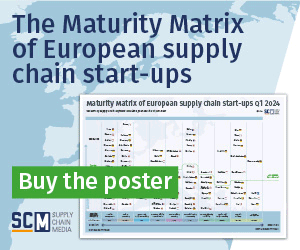Green inertia

With numerous wildfires raging around the world while other areas are hit by extreme flooding, few people can now doubt that sustainability is a top priority. A recent survey by the renowned MIT Center for Transportation & Logistics in Boston shows that the COVID-19 pandemic has had a positive effect on companies’ commitment to supply chain sustainability; 36% of those surveyed have increased their commitment, and only 9% have reduced it.
However, the percentage of businesses that have invested in supply chain sustainability has barely increased over the past two years (from 57% to 59%). 27% of the respondents have not yet made any investment in it, and 16% even answered ‘Don’t know’, which gives pause for thought. The biggest investment growth has been in human rights protection, employee welfare & safety and supplier diversification – mainly prompted by the supply chain challenges associated with the pandemic.
Greenwashing
Companies seem to be struggling to know what they should actually do in terms of supply chain sustainability and where to invest their time and money. Meanwhile, shareholders are increasingly asking for relevant plans, actions and progress to be made more transparent. University College Dublin has even developed an app to warn investors about ‘greenwashing’. Apparently, 84% of the sustainability claims made by Japanese companies and 75% of the claims made by American ones are too good to be true.
By the way, I understand what’s causing this supply chain sustainability inertia. Whereas it’s easy for companies to find software to support all the traditional supply chain processes, such as order processing, warehouse and transportation management and supply chain planning (e.g. ERP, WMS, TMS and S&OP), no separate and distinct category of supply chain sustainability software has yet emerged. However, various European and American software vendors are already offering relevant solutions, including BigMile, ChainPoint, Circular IQ, Circular Tree, Connecting Food, Rfxcel, SIM, Sourcemap, SupplyShift, Sustainabill and TrusTrace.
No longer any excuse for inertia
In other words, there’s no longer any excuse for inertia. Start by using tools from any of these vendors to gain insight into the sustainability footprint of your end-to-end supply chain. It’s time to finally get serious about measuring and benchmarking your carbon emissions. The Earth is on fire!
Martijn Lofvers, Chief Trendwatcher Supply Chain Media
martijn.lofvers@supplychainmedia.nl








